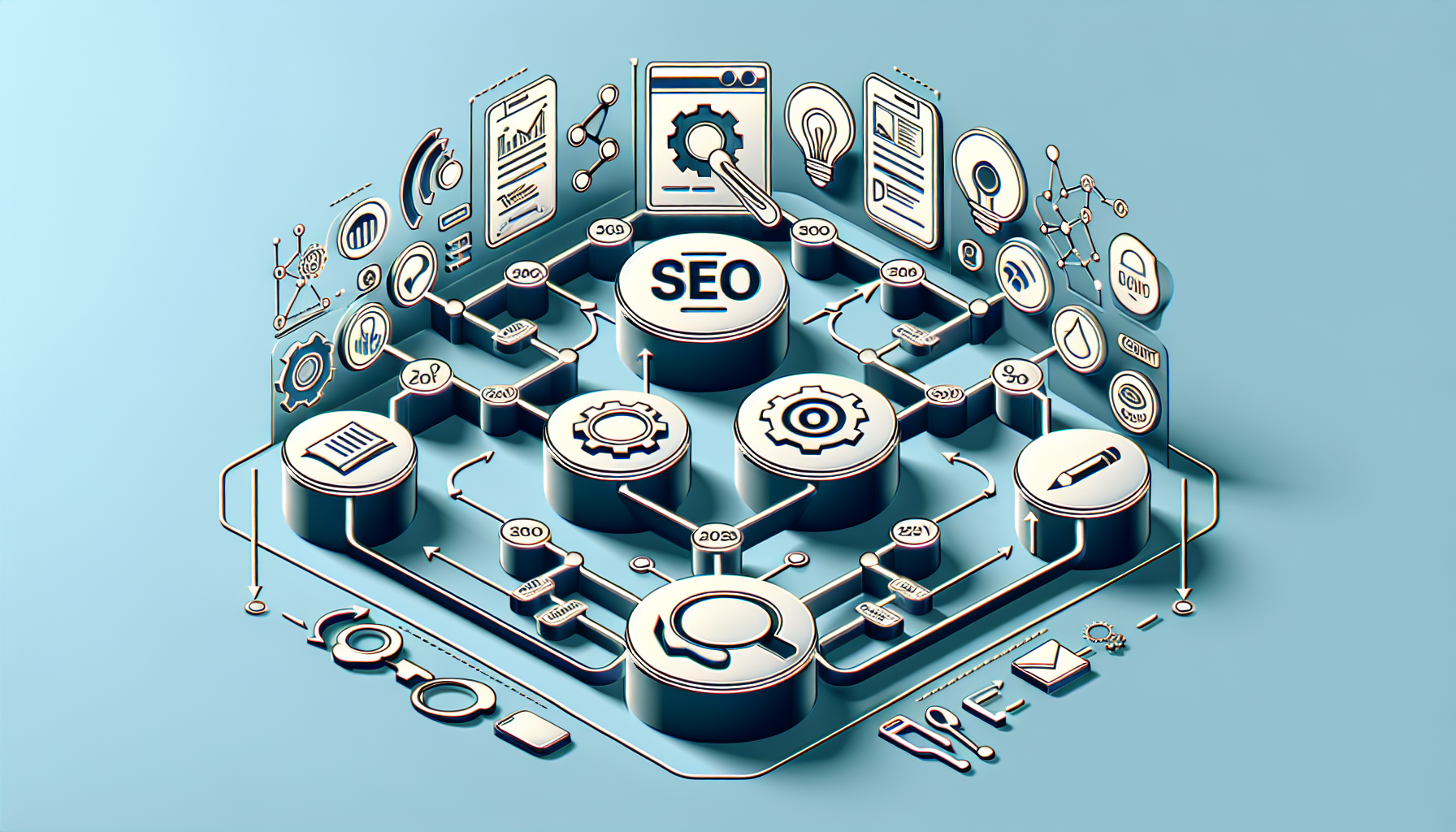Boost Your SEO: AI Strategies for Marketers in

Discover how AI transforms SEO in 2025! This guide offers marketers step-by-step strategies to leverage AI for improved rankings and engagement. Learn about AI tools, content optimization, and predictive analytics to stay ahead.
Table of Contents
- Introduction
- Prerequisites/Requirements
- Step-by-Step Instructions
- Common Pitfalls to Avoid
- Advanced Tips
- Conclusion with Next Steps
Enhancing SEO with AI for Marketers in 2025: A Step-by-Step Guide
Introduction
In this comprehensive guide, you will learn how to effectively harness the power of artificial intelligence (AI) to enhance your Search Engine Optimization (SEO) strategies as a marketer in 2025. From understanding AI-driven analytics to automating content creation, this tutorial will provide you with the necessary tools and techniques to improve your website's visibility and ranking on search engines.
Prerequisites/Requirements
Before diving into the AI-enhanced SEO strategies, ensure you have the following:
- A basic understanding of SEO fundamentals.
- Access to AI SEO tools (e.g., Clearscope, MarketMuse, SEMrush’s AI capabilities).
- An active website to implement AI-driven SEO enhancements.
Step-by-Step Instructions
Step 1: AI-Powered Keyword Research
Begin your AI SEO journey by leveraging AI tools to perform advanced keyword research:
- Use AI tools like SEMrush to analyze search data and predict upcoming trends.
- Identify long-tail keywords that are less competitive but highly relevant.
- Do: Focus on user intent and contextual meaning behind keywords.
- Don't: Overstuff your content with keywords, as AI algorithms prioritize content quality.
Step 2: Optimizing Content with AI
Enhance your content’s relevance and engagement by employing AI-driven content optimization tools:
- Use tools like MarketMuse to assess content quality and identify gaps in topic coverage.
- Generate AI-driven content suggestions that align with SEO best practices.
- Do: Regularly update old content based on AI insights to maintain relevance.
- Don't: Allow AI to dictate your brand voice; use AI suggestions as a guide but keep your unique tone.
Step 3: AI-Enhanced User Experience (UX)
Improve website usability and user engagement by integrating AI technologies:
- Incorporate AI chatbots to assist visitors and improve engagement.
- Utilize AI-driven A/B testing tools to optimize site layouts, colors, and call-to-action placements.
- Do: Monitor user interactions and tweak AI configurations to better meet user needs.
- Don't: Overload the site with intrusive AI features that could detract from user experience.
Step 4: Leveraging AI for Link Building
Use AI to identify and secure valuable backlinks:
- Deploy AI tools to analyze competitor backlink profiles and identify linking opportunities.
- Automate outreach for guest blogging and link exchange using AI-driven communication tools.
- Do: Focus on quality over quantity in link building to avoid penalties.
- Don't: Use AI to create spammy or unethical link-building tactics.
Common Pitfalls to Avoid
While employing AI in SEO can offer significant advantages, be wary of these common mistakes:
- Over-reliance on AI without human oversight can lead to content that lacks personal touch and user connection.
- Ignoring the need for continuous learning and updates on both AI tools and SEO trends.
- Failing to balance AI-driven strategies with traditional SEO techniques.
Advanced Tips
To further enhance your SEO strategy with AI, consider these advanced tips:
- Integrate AI with other data platforms like CRM and analytics tools to gain deeper insights into customer behavior.
- Use AI to create personalized content experiences dynamically based on user history and behavior.
- Experiment: Continuously test different AI tools and features to find what best suits your specific needs.
Conclusion with Next Steps
By following this guide, you should now be equipped to integrate AI into your SEO strategies effectively. As AI technology evolves, stay informed about new tools and capabilities that could further enhance your marketing efforts. Remember, the key to success with AI-enhanced SEO is to blend technology with creativity and human insight.
Next Steps:
- Review the performance of AI-enhanced strategies regularly.
- Keep learning about new AI developments and SEO trends.
- Share your findings and adjustments with your team to foster a culture of continuous improvement.
Frequently Asked Questions
What are the key AI tools for enhancing SEO in 2025?
In 2025, key AI tools for enhancing SEO include automated content generation software, AI-driven keyword research tools, and predictive analytics platforms that forecast SEO trends and user behavior. These tools help streamline SEO processes, identify optimal content strategies, and improve site rankings effectively.
How can marketers use AI to improve content creation for SEO?
Marketers can use AI to enhance content creation by leveraging natural language processing tools to optimize keyword usage, ensure content relevancy, and maintain reader engagement. AI can also suggest content topics based on trending queries and competitor analysis, helping marketers stay ahead in their SEO strategies.
What is the role of user experience in SEO, and how can AI help?
User experience plays a critical role in SEO as it affects site engagement, bounce rates, and ultimately, rankings. AI can enhance user experience by personalizing website interactions based on user behavior data, optimizing site speed through automated adjustments, and providing insights for usability improvements.
How can AI tools be integrated into existing SEO strategies?
Integrating AI tools into existing SEO strategies can be achieved by first analyzing current SEO performance and identifying areas for improvement. AI tools can then be implemented step-by-step, starting with automated analytics for insights, followed by AI-driven content and optimization tools to enhance specific aspects of the SEO strategy.
Sources and References
- MDN Web Docs - Comprehensive web development documentation
- Stack Overflow - Programming community and solutions
- GitHub - Code repositories and open source projects
- W3C Standards - Web standards and best practices
